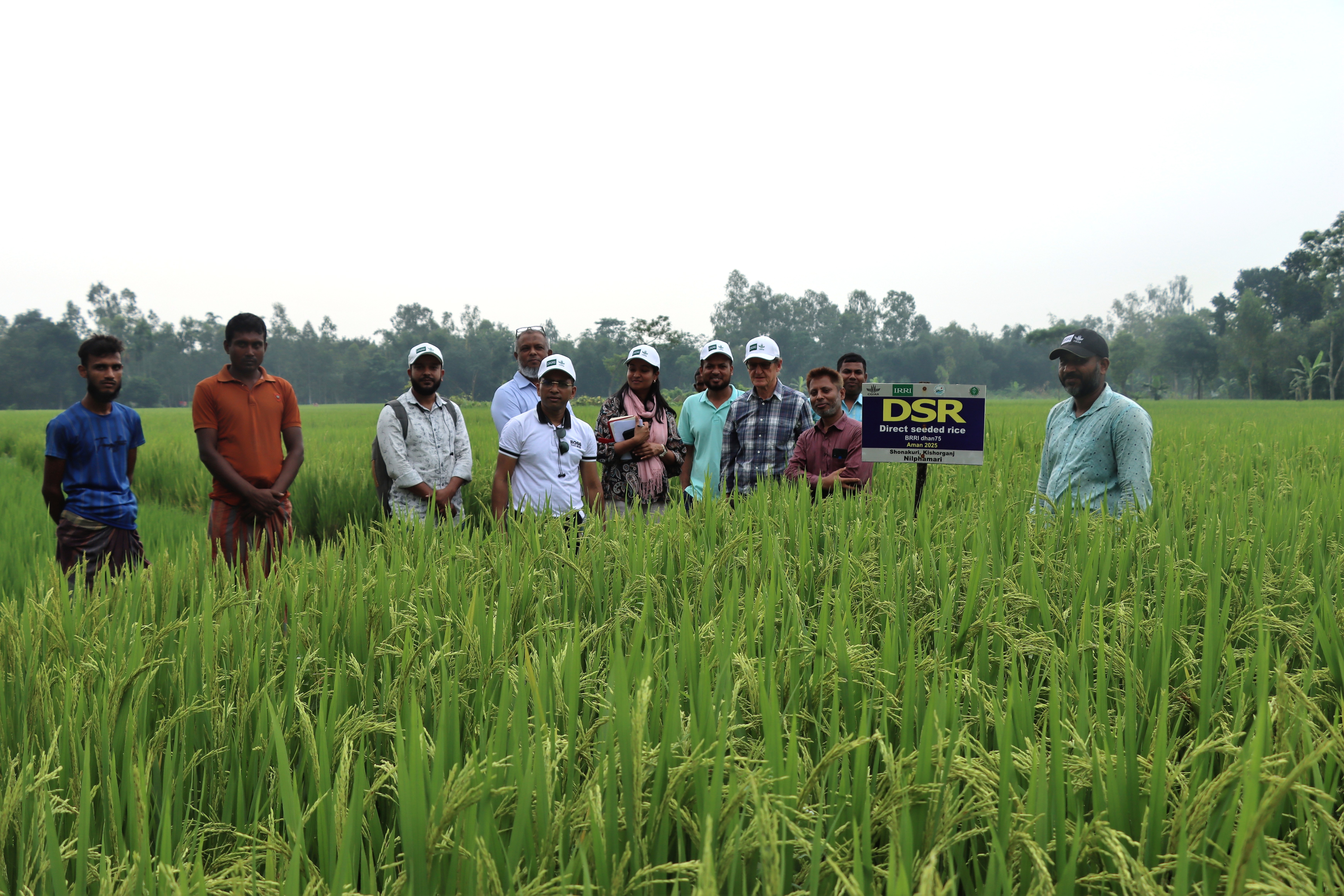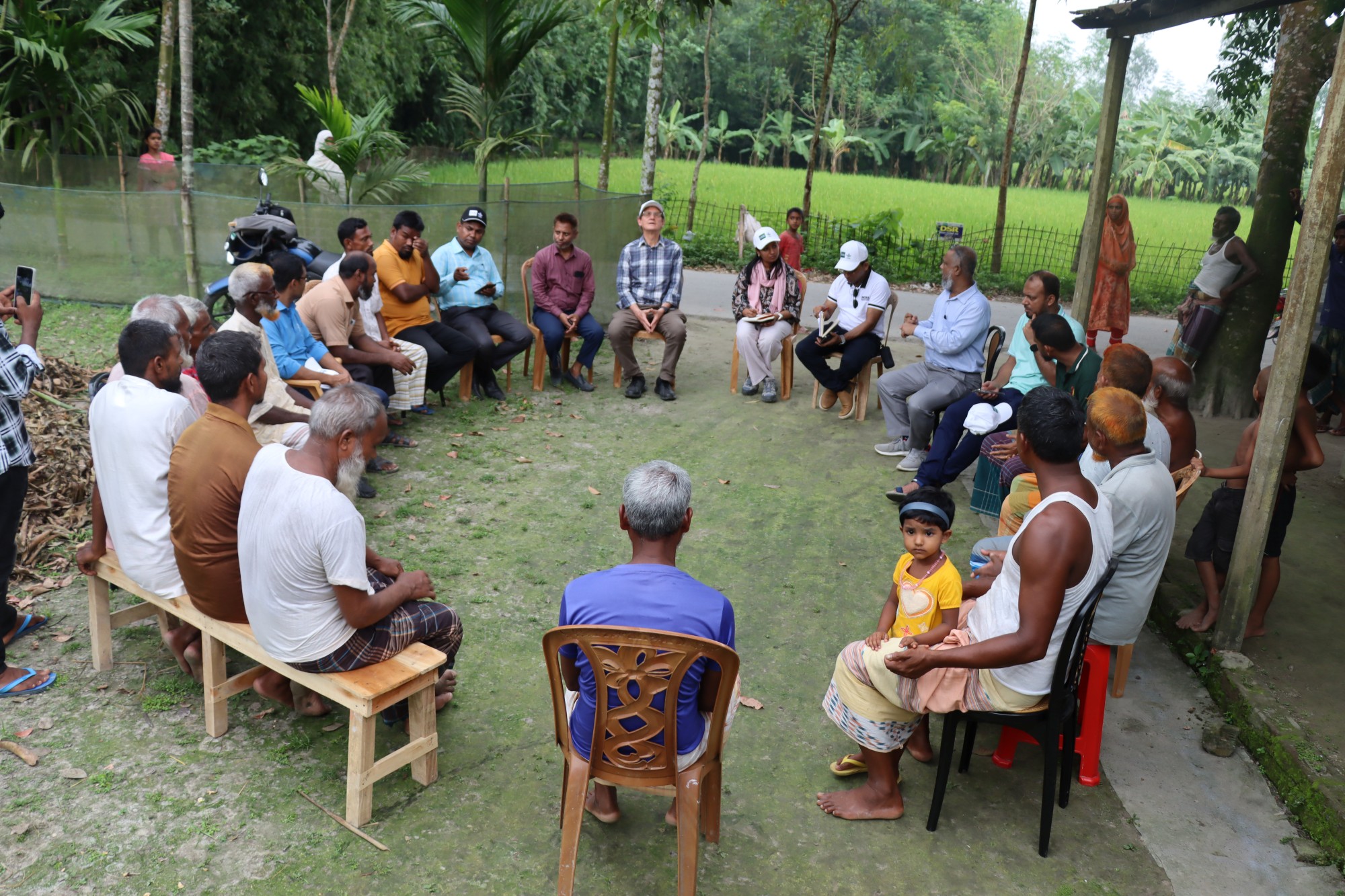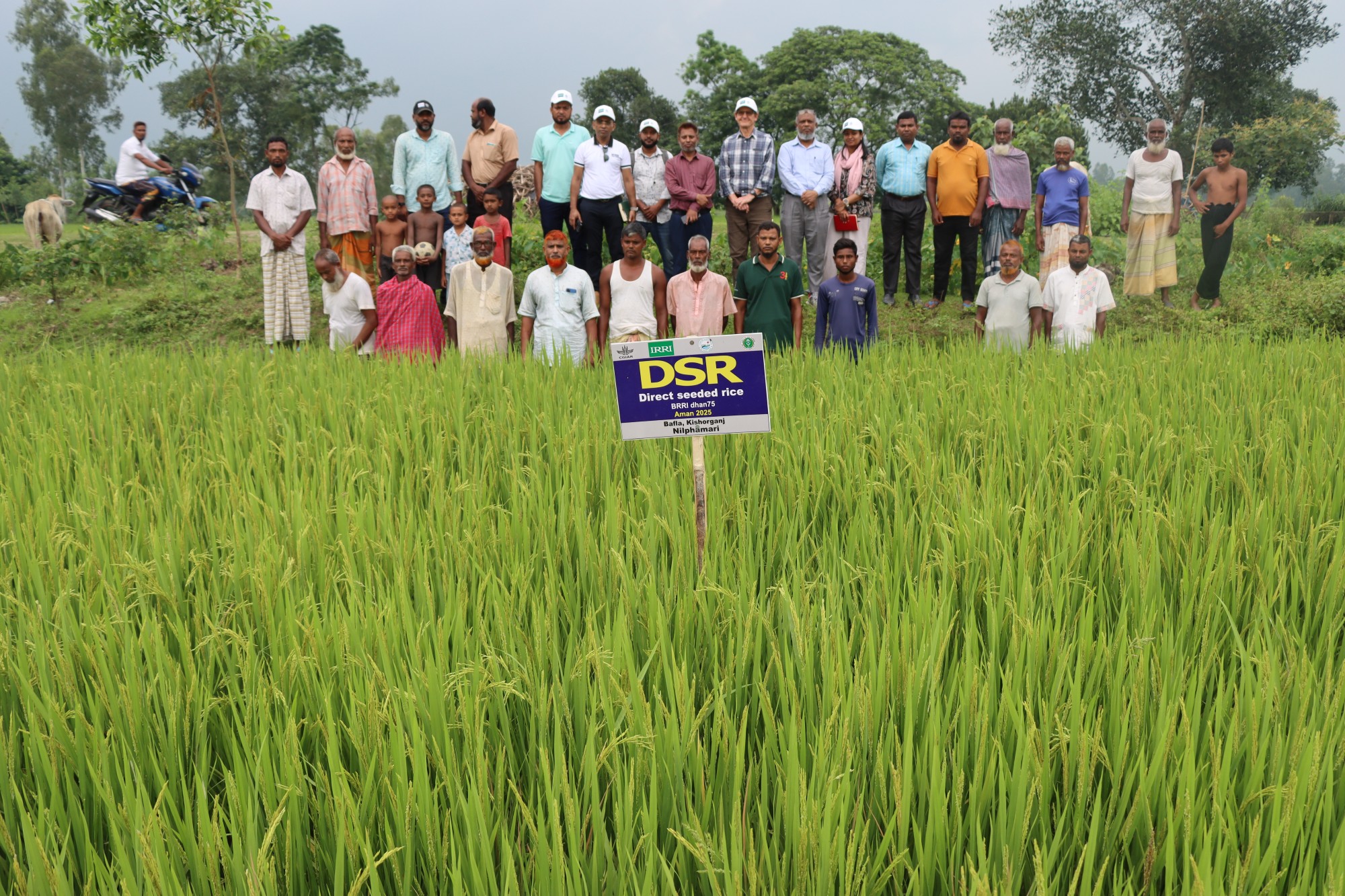Murdoch University Delegation Visits Nilphamari to Observe Direct-Seeded Rice Adoption in Bangladesh

Australian researchers highlight the potential of climate-smart rice farming for sustainable agriculture in Bangladesh.
On 7 September 2025, a team from Murdoch University, Australia, visited the Direct Seeded Rice (DSR) fields in Kishoreganj Upazila, Nilphamari District, Bangladesh, to evaluate the performance and adoption of this climate-smart rice production method. The visit was part of the ACIAR-funded project Change in Soil and Water Dynamics and Supporting the Adoption of Conservation Agriculture in Bangladesh (SACA), which explores the feasibility of dry direct-seeded rice in the country.
Led by Professor Dr. Richard W. Bell, the delegation included Dr. Md. Enamul Haque, Associate Professor and Lead Project Coordinator of the SACA project, Dr. Karthika Pradeep from Murdoch University, and Dr. Khairul Alam Bhuiyan, Principal Scientific Officer and focal person from BRRI. They were joined by farmers, Department of Agricultural Extension (DAE) officials, IRRI representatives, and other stakeholders. The visit also showcased the large-scale adoption of DSR across more than 200 acres in Kishoreganj Upazila, supported technically by IRRI.
“DSR is a climate-smart technology with significant potential for sustainable agriculture,” said Dr. Bell. “It is encouraging that IRRI has promoted this system strategically by selecting suitable fields, supporting local service providers with seed drill machines, and delivering training programs to farmers. These efforts are vital to accelerating the adoption of DSR in Bangladesh.”

Farmers shared their positive experiences during the visit. Milon Islam, a young farmer from Sonakuri, reported reduced irrigation, labor, and tillage requirements, saving both time and money. Another farmer, Asaduzzaman Raju, highlighted the expansion of DSR adoption—from just 20 farmers last year to around 200 this season—thanks to its cost-effectiveness and promising yields.
Bangladesh, one of the world’s most climate-vulnerable countries, faces increasing challenges in sustaining rice production. With rising demand for water-efficient, labor-saving, and climate-resilient farming practices, DSR offers a promising pathway to strengthen food security while reducing input costs for farmers.
The Nilphamari visit reflected the growing collaboration between Murdoch University, BRRI, IRRI, and DAE in advancing DSR adoption. The team noted strong farmer enthusiasm and expressed optimism about scaling the technology further in northern Bangladesh. Moving forward, additional technical support and training will be provided to farmers to embed DSR as a cornerstone of climate-resilient rice farming systems in the country.

The SACA project is funded by the Australian Centre for International Agricultural Research (ACIAR) and implemented in partnership with Murdoch University, BRRI, IRRI, and DAE.